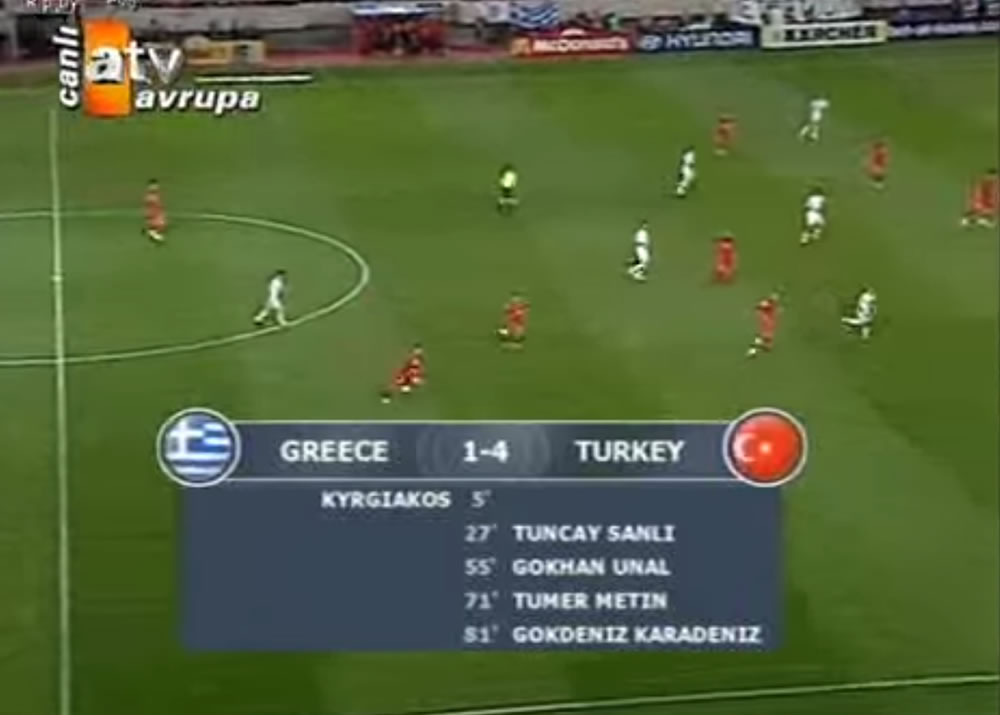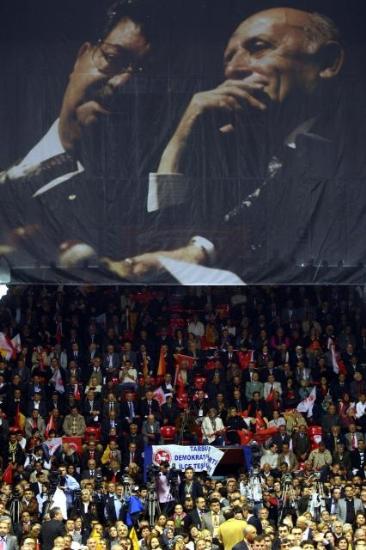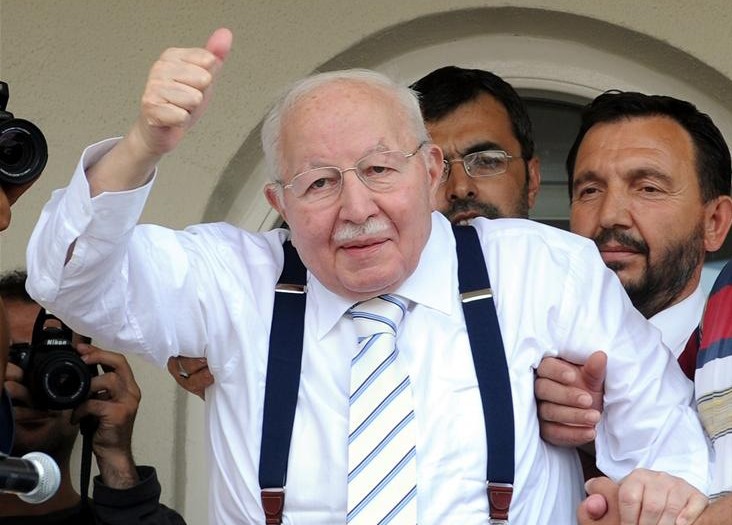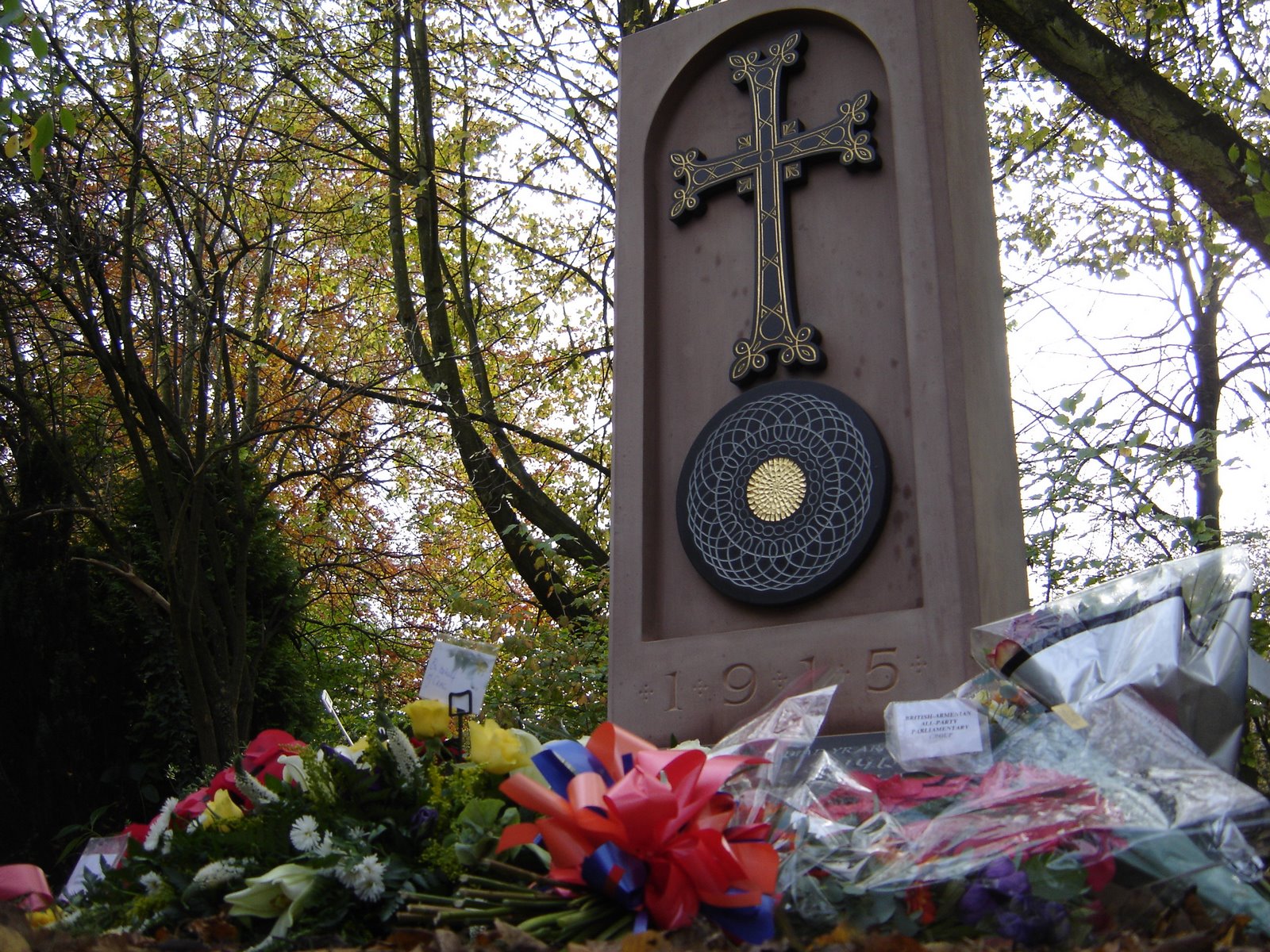Is it football or war between Turkey and Greece?
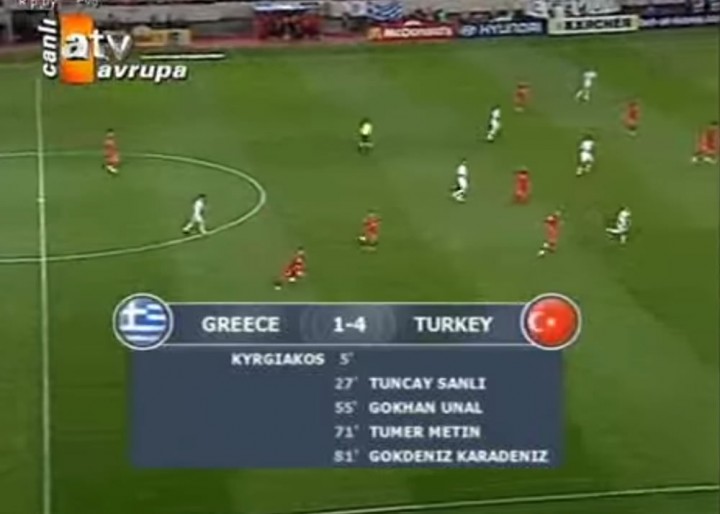 Turkey’s national football team came back yesterday from a goal down in Athens to defeat Greece 1-4. It was a convincing victory, taking Turkey three points clear at the top of its Euro 2008 qualifying group, and leaving the last European Champions with plenty to think about. Thousands of Turkey fans, as is traditional, took to the streets with their flags and loud voices to celebrate the victory.
Turkey’s national football team came back yesterday from a goal down in Athens to defeat Greece 1-4. It was a convincing victory, taking Turkey three points clear at the top of its Euro 2008 qualifying group, and leaving the last European Champions with plenty to think about. Thousands of Turkey fans, as is traditional, took to the streets with their flags and loud voices to celebrate the victory.
Such a pity there was more to it than the football.
“Love thy neighbour as thyself” – part of Christianity’s commandments – is an oft-used phrase in Britain. Most British people do take it to heart, in spite of conflicts over garden fences, mumblings over how differently they behave, and fierce arguments about who has a suspiciously greener lawn during a hosepipe ban.
The principle applies on a wider scale, too. Britain and France have a history of bloody warfare, and despite fighting two World Wars alongside each other there remains little (cultural) love lost between the two.
Greece and Turkey are not much different from the cross-channel entente. They argue over their fences (the Aegean), mutter over their petty differences (Greek delight, anyone?) and clash over the fortunes of their backyards (Cyprus). A football match between the two was sure to be charged – neither side had beaten the other in a competitive match since 1949 – but yesterday’s Turkish sports newspapers told a different story.
Fanatik yesterday splashed a huge Turkish flag on its front cover with one of Atatürk’s less endearing quotations: “the power you need exists in the noble blood of your veins”. Fotomaç too used the some quotation. Onikinci Adam went with another Atatürk quotation rallying the Turkish youth, while Fotospor opted for the stereotype: “We’ll puncture Athens, we’ll kiss Yorgo”. The tone was one of going to war.
Fotospor’s eloquence continued in this morning’s edition with “Be quiet and kneel” next to a picture of the Greek goalkeeper on his knees after conceding a goal. Fotomaç, awash in red, had another Kemalism – “Happy is the one who calls himself a Turk” – while Fanatik’s headline was “Here are Mustafa Kemal’s children”.
Turkey’s sports newspapers aren’t exactly aimed at an intellectual audience. They aren’t all that balanced either – all are heavily football-orientated, and the bulk of their pages cover the country’s biggest teams: Beşiltaş, Galatasaray and Fenerbahçe. Most also contain advertisements for pornographic hotlines on their inner pages. But they do sell well – Fanatik, for instance, shifts nearly 200,000 copies daily – and a rallying cry before a national football match has certainly been published before.
But what if things had turned violent in Athens, before or after the game? How inappropriate would the headlines be seen, had the fans clashed overnight? There is a broader question to ask as well – what do the headlines say about the recent upsurge in Turkish nationalism?
Today’s Birgün quotes Yüksel Gülsoy, of Fotomaç, as saying, “These are the basic elements used in a national match. It is called a national match, after all. These are words that have been used hundreds of times over. In our match with Greece these words must be seen as empty.”
Birgün – itself an independent newspaper with a tiny readership – describes the events as provocation. At a time when the traditional Turkish hospitality towards foreigners has never been quite as patchy, it is difficult to gauge whether the front pages demonstrate football hooliganism or rampant nationalism.





